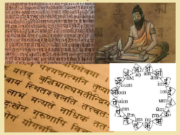In historic Indian texts, we can easily find the reference for these four words very commonly i.e. Rishi, Muni, Sadhu, and Sannyasin. But I believe a very small percentage of people knows who they are and what is the key difference between them. I will explain what is the importance of these four people and what is written about them in our respected historical textbooks in this post.
Who are Rishis (Sanskrit: ऋषि, romanized: ṛṣi)
Rishi word is taken from Vedic tradition which is used to represent those people who espial Shruti texts (“श्रुति ग्रंथों“). To put it another way, rishis are those who studied the Vedic tradition with a special and unique concentration, saw unique words and knew their esoteric meanings, and manifested that knowledge via writing solely for the benefit of living creatures.
Who are Munis (Sanskrit मुनि, “silent”, the “Mauna” – pause)
Muni was a sage in his own right, yet he was devoid of rage and animosity. The Bhagavad Gita says that sages are saints with pristine knowledge whose minds are not distracted by grief, who do not crave happiness, and who is free from attachment, fear, and anger.
Who are Sadhus (Sanskrit: साधु)
A sadhu is a person who performs sadhana on any subject. Many people used to conduct sadhana of any subject by leaving society or staying in society at times to gain specific knowledge in that subject in ancient times. He was dubbed a sage just for nurturing the subject or doing sadhana.
Who are Sannyasin (Sanskrit: सन्न्यासिन्)
Asceticism is not related to Hinduism in its early form. During the Vedic period, no sanyasi is mentioned. The term sannyasin or sannyasa is thought to have originated in Jainism and Buddhism, where sannyas has its own set of beliefs. In Hinduism, Adi Shankaracharya is revered as a great sannyasi. The word sannyasi comes from the Sanskrit word sannyasa, which means “to give up.” As a result, a renouncer is known as a sannyasi. A sannyasi renounces property, domestic life, or remains single, renounces society and worldly life, and practices yogic meditation in devotion.




















